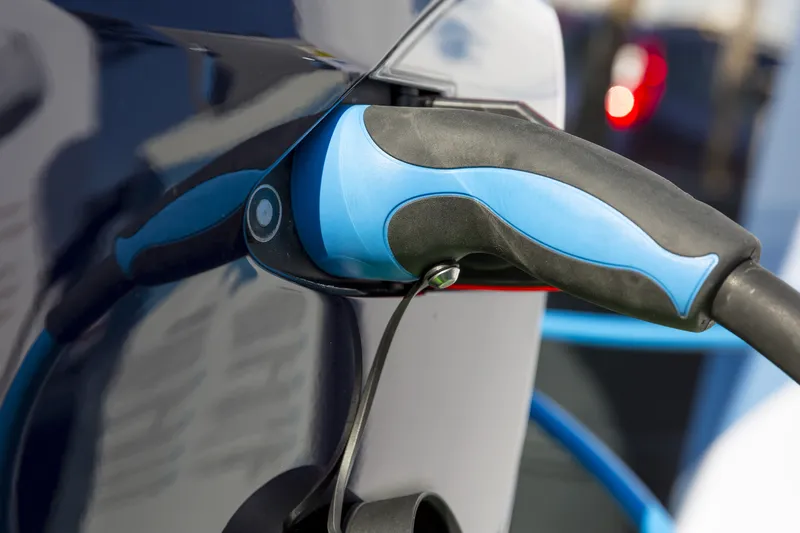EVgo has added second-life BMW i3 batteries to its Union City fast-charging station in California to store energy during peak solar hours and reduce strain on the grid. This energy is then used to deliver a fast charge to EVgo customers’ electric vehicles during periods of high demand.
The second-life battery system integrates two BMW i3 battery packs into a single housing.
Evgo says each battery pack has a capacity of 22 kWh which combines with a 30 kW inverter to offer a 30 kW/44 kWh energy storag
July 18, 2018
Read time: 1 min
EVgo has added second-life BMW i3 batteries to its Union City fast-charging station in California to store energy during peak solar hours and reduce strain on the grid. This energy is then used to deliver a fast charge to EVgo customers’ electric vehicles during periods of high demand.
The second-life battery system integrates two BMW i3 battery packs into a single housing.
Evgo says each battery pack has a capacity of 22 kWh which combines with a 30 kW inverter to offer a 30 kW/44 kWh energy storage system.
Princeton Power Systems provided the inverter hardware and integrated it with the battery packs. Meanwhile, technology company Kisensum developed software controls for the battery system and managed software integration.
The EVgo Union City site began operating earlier this summer and currently has two 50 kW DC fast chargers.










